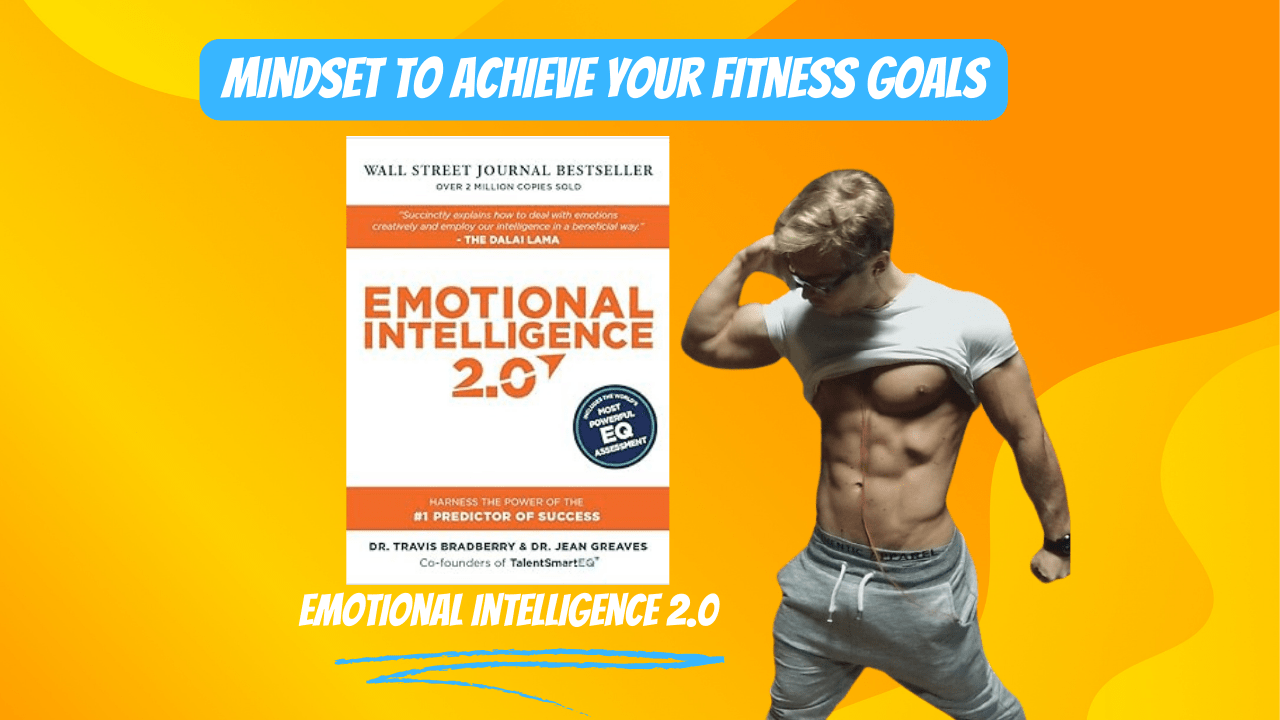Achieving Fitness Goals with Emotional Intelligence 2.0 Principles
Achieving fitness goals requires more than just physical effort; it demands emotional resilience, self-awareness, and effective interpersonal skills. In “Emotional Intelligence 2.0” by Travis Bradberry and Jean Greaves, the authors explore how emotional intelligence (EI) can enhance personal and professional success. Applying these principles to your fitness journey can help you develop the mindset necessary for sustained progress and ultimate success.
Understanding Emotional Intelligence
What is Emotional Intelligence?
Emotional intelligence is the ability to recognize, understand, and manage our own emotions while also being able to recognize, understand, and influence the emotions of others. Bradberry and Greaves break down EI into four core skills: self-awareness, self-management, social awareness, and relationship management. Each of these skills can be harnessed to improve your approach to fitness.
The Importance of EI in Fitness
While physical strength and stamina are critical to fitness, emotional intelligence plays a crucial role in staying motivated, handling setbacks, and maintaining healthy relationships with workout partners or fitness coaches. By cultivating a high level of EI, you can navigate the emotional challenges of a fitness journey more effectively.
Building Self-Awareness
Recognizing Your Emotions
Self-awareness is the foundation of emotional intelligence. It involves recognizing and understanding your own emotions and how they affect your thoughts and behavior. In fitness, this means being aware of what motivates you, what discourages you, and how different exercises make you feel.
Tracking Emotional Triggers
Identify the emotional triggers that affect your fitness routine. Do you tend to skip workouts when you’re stressed? Do you overeat when you’re feeling down? Tracking these triggers can help you understand patterns and develop strategies to manage them. Use a journal to record your emotions and reactions to different fitness activities.
Enhancing Self-Management
Setting Realistic Goals
Self-management involves controlling your emotions and behaviors to achieve your goals. Start by setting realistic, achievable fitness goals. Break down larger goals into smaller, manageable tasks. For example, if your goal is to lose 20 pounds, set smaller goals like losing 1-2 pounds per week.
Developing Healthy Habits
Create routines that promote consistency and discipline. Establish a regular workout schedule, plan your meals, and make time for rest and recovery. Consistency is key to achieving long-term fitness success. Use techniques such as visualization and positive affirmations to stay motivated.
Improving Social Awareness
Understanding Others
Social awareness is the capacity to comprehend and empathize with others. In a fitness context, this means being aware of the needs and emotions of your workout partners, trainers, or gym community. Show empathy and support to others on their fitness journeys, and build a network of encouragement and mutual respect.
Active Listening
Practice active listening during interactions with fitness coaches or workout partners. This involves thoroughly focusing, comprehending, responding, and then remembering what is being said. Effective communication can lead to better advice, improved techniques, and stronger relationships within your fitness community.
Strengthening Relationship Management
Building Supportive Relationships
Relationship management is about developing and maintaining healthy relationships. Surround yourself with supportive individuals who encourage your fitness objectives. Enroll in fitness classes, find a workout fellow, or become part of an online fitness community. Positive relationships provide motivation and accountability.
Handling Conflict
Learn to handle conflicts constructively. Whether it’s a disagreement with a workout partner or frustration with a fitness instructor, approach conflicts with a calm and open mindset. Use effective communication strategies to resolve issues and maintain positive relationships.
Overcoming Setbacks
Resilience and Adaptability
Setbacks are inevitable in any fitness journey. Emotional intelligence helps you develop resilience and adaptability. When faced with injuries, plateaus, or other challenges, use your self-awareness to recognize your emotions and your self-management skills to stay focused on your goals.
Learning from Mistakes
Consider blunders and setbacks as opportunities to learn and evolve. Scrutinize what went wrong, revise your approach, and move ahead with renewed resolution. A high level of emotional intelligence allows you to bounce back from setbacks more quickly and effectively.
Conclusion
Achieving fitness goals is a multifaceted journey that requires both physical and emotional strength. By using the principles of “Emotional Intelligence 2.0” by Travis Bradberry and Jean Greaves, you can form the emotional resilience, self-awareness, self-management, social awareness, and relationship management skills required to thrive. Embrace the power of emotional intelligence to navigate the challenges of your fitness journey and achieve lasting success.
For further reading and to deepen your understanding of emotional intelligence, consider getting a copy of “Emotional Intelligence 2.0.” You can find it here.


